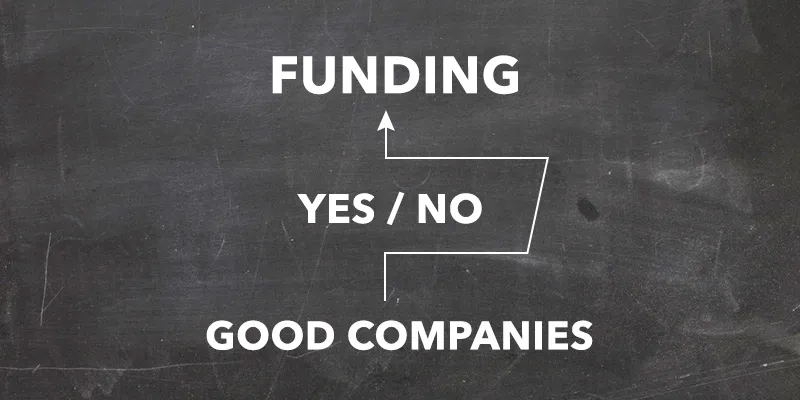Private equity funding into Indian startups down 25% in 2016 - Goldman Sachs
On Friday, global financial major Goldman Sachs released a report stating that private equity funding in Indian startups has declined by 25 percent year-on-year, falling from $2.5 billion in 2015 to $1.9 billion in 2016.

The report states that while the number of deals have picked up by 52 percent year-on-year, the average deal size has declined by 51 percent to $4.3 million in 2016.
Further, the slowdown in private equity capital has seriously impacted Series B and Series C rounds, pushing startups to restructure operations for profitability and lower cash burn rates and focus on profitability.
However, the report states that the tide seems to be smooth for those who have attained scale in their operations. The report says that ‘the newer ones are finding it more difficult’, while further outlining that “forced consolidation has led players with stronger balance sheets or scale to acquire the weaker companies in some cases".
Focusing on the e-commerce market globally, the report expects it to grow by 20 percent, with major growth coming from China and India in the next three years. Further, the Indian e-commerce market is estimated to touch the $100 billion mark, owing to factors such as customer willingness, occasions to spend and penetration of mobile internet.
Also, capital flows are primarily receding since peaking at $4 billion in the third quarter of 2015, states the report.
According to another report released by EY (Ernst & Young) on private equity investments in India, the first four months of 2016 have witnessed expansion and growth deals. This involves firms with established business models and profitability to dominate the investment activity. A similar trend was also witnessed in May.
This shifting focus towards profitability can be seen in the behaviour of e-commerce companies. Online players are moving away from discounts to gain market share and betting big to build their unique propositions.
Flipkart, very recently structured its returns policy, reportedly charging sellers a shipping fee, a reverse shipping fee and a collection fee for every product returned online. Earlier, sellers were charged only one percent of the order price if the return was due to a fault in their product. This have caused certain sellers to quit operations on the e-commerce marketplace.
On the other hand, Amazon just yesterday filed a lawsuit at the Gujarat High Court protesting about entry taxes that cause a loss of revenue for e-commerce companies. Moreover, both Flipkart and Amazon have increased their seller commissions.
Hence, the Goldman Sachs report states that with the venture market rationalising, the Indian startup ecosystem seems to be entering a phase of consolidation.
According to data from YourStory Research, CommonFloor (to Quikr), Bookmycab (to Wings travels), HandyHome (to UrbanClap), InOpen (NextEducation) and Orobind (Housejoy.in) were amongst the top five highest funded startups to be acquired in Q1 2016.







